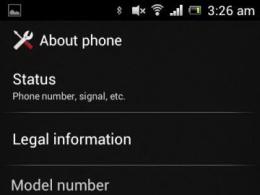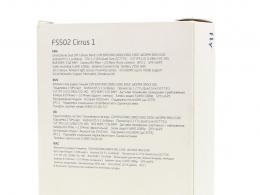Pickpoint Bitrix. PickPoint delivery service is an ideal solution for online stores
This section is intended for developers of applications and servers that use the PickPoint geocoding platform. Before you start working with the API you need to create an account. To quickly familiarize yourself with our service please refer to the Getting Started section.
All you need to start experimenting is any utility for sending HTTP requests, or you can even use your web browser's address bar. You can also use , which is available from your account dashboard.
Authentication
While developing PickPoint we did our best to minimize the effort needed to integrate it with your products. We deliberately decided not to use Basic Authentication, Bearer Token Authentication and others, in favor of using user keys directly in the URL requests to our service.
To start working with our service you must first copy your API Key that is available from your section:
Now you can make your first request to the PickPoint API. To do that, create a URL in the following format:
https://api.site/v1/? key=YOUR-API-KEY
Open the resulting URL in the address bar of your browser. You will see a "Welcome to PickPoint API" message. This means that you have been successfully authorized and connected to our API. Otherwise, you will see an "Unauthorized" message.
To use PickPoint API functions you need to add your API key to all of your queries:
key=YOUR-API-KEY
Please note that all PickPoint functions are accessible only with an access key.
Forward Geocoding
Forward Geocoding is a function for converting geographic addresses to coordinates in a Latitude - Longitude format. For example, providing an address like "221b Baker St, London NW1 6XE" you would receive its coordinates - "51.524259, -0.1584738", and have it shown on a map.
Using the forward geocoding will result in a list of geographical objects from the OSM database, sorted by relevance. This means options that are considered to more precisely match the expected results, will be at the top of the list.
entry point
The forward geocoding functions are executed using the following queries:
GET https://api.site/v1/forward
Query
The main geocoding function parameter is the search query that is sent with the key q. Normally, the geographical address of the object is the search query, for example:
221b Baker St, London NW1 6XE
note, that the query line should be converted to the URL-encoded format.
The q parameter is also sufficient for making a simple query:
q=21b%20Baker%20St,%20London%20NW1%206XE
If you want to narrow your query by the type of the element sought, for example search only cities or countries, you should use the following parameters:
- country- search by country
- state- search by states
- county- search by districts / provinces
- city-search by names of cities
- street- search by names of streets. Should be specified in the following format
- postal code- limit the results to a specified postal code
Please note that these parameters are not applicable with the q parameter.
Let's consider a search for cities with the name St. Petersburg:
GET /forward/?key=YOUR-API-KEY& city=Saint-Petersburg
Boundaries
For various reasons you may want to limit your search results. Below you will see several useful parameters which you can use for this.
The country codes parameter is used to limit the search area by a country or a list of countries. The parameter value here should be a two-letter country code (or country codes) in the ISO 3166 alpha-2 format. Here's an example:
- Poland-pl
- New Zealand-nz
- China-cn
You may know that London as a geographical name refers not only to the capital of the UK, but also to several cities in the US. In order to exclude the results outside the UK, you should formulate your query as:
countrycodes=gb
The full list of country codes in the ISO 3166 alpha-2 format can be found .
There are a large number of different geo-objects with the same name. But, if you limit your search area geometrically, by way of forming a rectangular area on a coordinate grid, you will probably get better results. This is where the viewbox parameter comes into play. For example, you want to find coordinates for objects with the word "park" in their names. More specifically, your search is for such objects only in London. Using the results of the previous query, specify:
GET /forward/?key=YOUR-API-KEY&q=park& viewbox=0.0,52.0,1.0,53.0&bounded=1
Please note that apart from viewbox the query includes the bounded parameter. The use of this parameter guarantees that only the results from the specified area ( viewbox) will be shown.
In order to exclude the results you know are irrelevant, use the exclude_place_ids parameter with OSM (place_id) identifiers for unwanted geographical objects. For example, you want to find all objects named "London", excluding the UK capital. Using the place_id that we received as a result for one of our previous queries, we have:
GET /forward/?key=YOUR-API-KEY&q=London& exclude_place_ids=158415464
To limit the number of resulting options, use the limit parameters:
GET /forward/?key=YOUR-API-KEY&q=London& limit=1
reverse geocoding
Reverse Geocoding is a function that converts coordinates in Latitude – Longitude format into geographical addresses. For example, by providing input coordinates "51.524259, -0.1584738" you will get the geographical address for this point:
entry point
Reverse geocoding functions are available at the following address:
https://api.site/v1/reverse
Query
In order to execute a simple reverse geocoding function you need to use two parameters: lat– latitude, and lon- length. These parameters should be specified in degrees. Example:
GET /reverse/?key=YOUR-API-KEY& lat=48.85881005&lon=2.32003101155031
The results of the reverse geocoding function can be scaled by way of changing the zoom parameter from 0 (widest parameter - countries) to 18 (narrowest parameter - buildings). Example:
GET /reverse/?key=YOUR-API-KEY&lat=52.183430&lon=-106.2707519& zoom=0
address lookup
Address Lookup is a function for converting OSM identifiers to geographical addresses with corresponding coordinates. For example, the OSM database has a way with identifier 3996986 which is saved for you as a result of a geocoding function. Using lookup you can get a geographical address: "Baker Street, Marylebone, Westminster, London, Greater London, England, NW1 6XE".
entry point
This is the entry point for the address lookup function:
https://api.site/v1/lookup
Query
This function "s input is the osm_ids parameter. It should list the objects (from one to 50), separated by commas. For every object you must specify which OSM type it belongs to, and next to it should be the object identifier. There are three main OSM object types:
- R - relation
- W-way
- N-node
Here are examples for each object type:
GET /lookup/?key=YOUR-API-KEY& osm_ids=W481027013,N1809771508,R568660
response format
Our geocoding platform supports two of the most common response formats: JSON and XML. You can change them by including the desired format (json or xml) in the format parameter of the query, for example:
GET /forward/?key=YOUR-API-KEY&q=Tokyo& format=json
localization
Using the accept-language parameter you can specify the preferred geocoding result language. The value of this parameter must be specified in the format ab-XY, where:
- "ab" – is a two-letter language code in the ISO 639-1 format. For example, "en" is English, "fr" is French, "ru" is Russian. To see the full list of all language codes click .
- "XY" – is a two-letter country code in the ISO-3166 format. For example, "ES" is Spain, "DE" is Germany, "CN" is China. To see the full list of country codes, click .
GET /forward/?key=YOUR-API-KEY&q=London& accept-language=de-DE
extended response
Each type of geocoding query is able to return addresses in a structured format. For this you should use the addressdetails=1 parameter. As a result, in the response body there will be a new "addressparts" attribute (for address lookup queries the detailed address is a part of the response body) that describes every part of the found address in detail.
Example of a query with detailed address:
GET /reverse/?key=YOUR-API-KEY&lat=48.8698899&lon=2.3084521&zoom=18& addressdetails=1
If you need to see a list of names of a geo-objects in other languages, or find possible alternative names, use the namedetails=1 parameter. The response will have a new "namedetails" attribute with a list of all possible names, like in the following example:
GET /lookup/?key=YOUR-API-KEY&osm_ids=R2360164& namedetails=1
output geometry
In some cases you may need to know the boundaries of geo-objects, for example, to show them on a map or to visualize them in any other way. Currently, this option is only available for forward and reverse geocoding queries. You can get these coordinates in four different formats:
- GeoJSON - when setting the polygon_geojson parameters to 1, the result will come in the geojson attribute of the response line.
- KML-send polygon_kml=1, to receive coordinates as the value of the geokml attribute.
- SVG - data in this format should be requested using the polygon_svg=1 parameter. The result will appear in the geosvg attribute.
- Text - to receive coordinates as text, use the polygon_text=1 parameter. The result will be in the geotext attribute.
Here’s an example, for receiving the boundaries of London:
GET /reverse/?key=YOUR-API-KEY&lat=51.5073219&lon=-0.1276473&zoom=10& polygon_geojson=1
Publication date:
Update date:
Adaptability:
Composite support:
Number of installations:
Over 1000 times
Compatible editions
Description
PickPoint is a logistics company that operates the widest network of parcel lockers and pickup points in Russia.- More than 1500 parcel terminals and pickup points
- Delivery to > 380 cities and towns in all regions of Russia.
PickPoint has been operating in the logistics market for more than 5 years and occupies 80% of the parcel delivery market.
A specially developed module for partner stores using 1C-Bitrix CMS allows you to quickly and easily connect a store to PickPoint delivery.
Functionality:
- Calculation of delivery to more than 380 cities of Russia;
- When the buyer chooses a convenient delivery point, it is automatically saved in the order;
- Ability to manage the final cost of delivery for buyers;
- Automatic transfer of orders to the personal account of the online store in the PickPoint system using the PickPoint API;
- Accounting and displaying markups in the order when paying by cash on delivery.
- The ability to set the cost of the order, after which the delivery for the buyer will be free.
In the PickPoint module, all processes are automated and convenient for both online store employees and customers.
Please note that the postamat selection module was developed for the 1C-Bitrix CMS source code. If any changes were made to the code, as well as improvements were made to the CMS on the side of the online store, PickPoint does not guarantee the correct operation of the script. All the necessary improvements in connection with this to adjust the module are carried out at the expense of the online store.
You can get help with installation and configuration at e-mail: [email protected]
1. Sign an agreement with PickPoint, information can be found at: [email protected]
2. Install the epages.pickpoint module via the Marketplace (if available) old version remove the module first).
3. Enter registration data, enable the installed module and configure it (Shop / Store settings / Delivery services / Automated).
detailed instructions for connecting and configuring the module: http://epages.su/projects/modul-na-marketpleys-pickpoint/
You can get any help with installation and configuration by e-mail: [email protected]
The service is provided on a paid basis. Installing and configuring the module takes an average of 2 hours of work. The cost of an hour of work is 1,600 rubles.
If you have installed the module and there are problems with its operation, this may be due to the customization of the checkout component in your online store. In this case, we provide assistance in setting up and launching the module also on a paid basis.
PickPoint is one of the largest networks of parcel lockers and points for issuing goods purchased from an online store. The PickPoint network includes more than 1800 parcel terminals and pickup points in more than 460 cities and towns in Russia.
The 1C and PickPoint integration module allows you to organize data exchange between your 1C infobase and your PickPoint personal account using the official API. As a result, the processing time for delivery orders is reduced and the risk of data entry errors is reduced. This solution is implemented as an open source external processing, which is built into typical 1C configurations without the need to modify and remove them from support.
The main features of the 1C and PickPoint integration module:
- selection of postamates and points of issue of orders
- calculation of cost and delivery time
- placing an order for delivery
- printing of labels for customer orders and transfer registers according to the list of orders
- PickPoint courier call management for picking up orders (in development!)
- monitoring the delivery status of orders (in development!)
- informing customers by mail and / or SMS about the delivery status of the order (in development!)
Compatibility:
- Platform version 1C:Enterprise not lower than 8.3.6.1977
- Work with the following 1C configurations is supported:
- Trade Management Revision 11
- Integrated Automation Edition 2
- ERP Enterprise Management 2
- Small Business Management, Revision 1
- Retail edition 2
Installation and initial configuration of the integration module
The 1C and PickPoint integration module is supplied as an external processing, which is installed in the program as an additional processing:
The command interface of the integration module is available from the list form and the main form of the "Customer's order" document:

The initial configuration of integration parameters is launched by the command of the same name:

The parameters for connecting to the PickPoint API are set individually for each organization and are provided upon request to the PickPoint support team. You must specify a username, password, and ID.
In addition to the integration settings, the settings set default values for other details used when filling out delivery orders (dimensions and weight of the order packaging, description of the type of shipment, shipping method, etc.).
Create a delivery order
To create a delivery order, the integration module command of the same name is used, which can be launched from the list form or the main form of the "Customer Order" document:

The fields of the delivery order creation form are filled in automatically according to the data of the selected customer order. If necessary, these data can be supplemented or edited. For example, to clarify the dimensions and weight of the order package, or indicate a spare phone number for contacting the client. The amount payable by the client (cash on delivery) is calculated automatically taking into account the client's debt for the current order, but can be edited manually by the user, for example, in the case of sending orders with post-payment.

After selecting a parcel terminal or pickup point using the "Place an order for delivery" button, the shipment data is registered in personal account PickPoint, and in 1C for the current order in additional information the registration number of the shipment is stored.


Selection of parcel lockers and points of issue of orders with the calculation of the cost and delivery time
When placing a delivery order directly in the 1C interface, the user can display all PickPoint parcel terminals and pickup points with information about the address, the maximum size and weight of the order package, the possibility of paying by bank card and / or cash. By default, for convenience, the list of parcel terminals and pickup points is filtered by the city specified in the actual address of the counterparty from the order. Any postamat / pickup point can be displayed on Yandex.Maps or Google Maps.

Calculation of the cost and delivery time is performed for one or several selected parcel terminals / pickup points in the list. The shipping rate depends on the weight and dimensions of the shipment.

When choosing a postamat / pickup point, it is possible to specify the method of transferring the shipment to the delivery service - using the PickPoint courier or self-delivery.

Print labels and transfer registers for customer orders
Before transferring shipments to the delivery service, you must attach an individual label to the packaging of each order and print out the transfer register. From the integration module, it is possible to print an individual label for each order in A4 or Zebra format.

The transmission register is printed using the command of the same name.

Improvement plans:
- PickPoint courier call management for picking up orders
- Order delivery status monitoring
- Informing customers by mail and / or SMS about the delivery status of the order
- Implementing an Integration Module as a Configuration Extension
Warranties and support
- When you purchase an integration module, you get a support grace period of 180 days. In the future, it is possible to extend support for an additional fee.
- Stable operation of the integration module is guaranteed in accordance with the capabilities of the official PickPoint API, subject to a support subscription.
- New versions of the integration module with the development of functionality and bug fixes are available for free download, subject to a support subscription.
History of changes
- 01/27/2017. Version 0.10. Bugs fixed.
- 10/15/2016. Version 0.9. Optimized the function of auto-selection of pickup points when entering the value of the settlement.
Advantages
- Full support for the PickPoint API: all key operations for working with delivery orders have been implemented
- Convenient and clear interface
- The solution is implemented as an external plug-in processing, no configuration required information base
- Open programming code
- Guaranteed uptime support with the official PickPoint API
Money Back Guarantee
Infostart LLC guarantees you a 100% refund if the program does not correspond to the declared functionality from the description. The money can be returned in full if you declare it within 14 days from the date of receipt of money to our account.
The program is so tested in work that we can give such a guarantee with full confidence. We want all of our customers to be happy with their purchase.
Integration with PickPoint is a professional and convenient module for integration with the PickPoint delivery service for online stores on the 1C-Bitrix platform.
Main advantages of the solution:
- Uploading orders to PickPoint, then saving the departure number in the order and sending letters to customers with the text of the tracking number and a link to the company's website, where you can track your order using this number;
- Calculation of the cost of delivery of an order from any city.
- Checking the availability of the selected payment method. That is, if the client has chosen delivery to a pickup point, the system will check the selected payment method for availability at the selected pickup point.
- Ability to set a markup on the cost of delivery;
- Ability to set a fixed shipping cost;
- All requests to the PickPoint API are cached in order to speed up the calculation of shipping costs;
- Pickup point selection window - a native widget provided by PickPoint, information about pickup point availability is always up-to-date;
- Possibility to edit the order in the admin panel by selecting another pickup point
- The solution can work with test access to PickPoint to test the integration;
- Works on the editions of "1C-Bitrix: Site Management: Small Business or Business" starting from version 16 and higher;
- The cUrl library is not required on your hosting, it is possible to send all requests via HttpClient - a built-in BUS class.
You can get11% discount on tariffsfor complex positioning of PickPoint and placement of materials for your buyers. Get more information
Our experts will be happy to advise and assist in installing and configuring the solution (details in the "Support" section), as well as provide services to finalize the solution to suit your needs!
1.1.12 :
Fixed problem with encodings.
1.1.11 :Fixed saving pvz address in order.
1.1.10 :1. Fixed problems with pvz list caching.
2. Added price rounding.
3. Update of statuses on the module's dispatch page has been fixed.
NEW
Added display of delivery times in checkout
FIX
Fixed a bug where SD was not displayed for the city of Korolev
Small improvements in the error handling mechanism
NEW
A new option "Consider shipment flag" has been added to the module settings. If the checkbox is cleared, you will be able to ship orders to Pickpoint, even if the order has already been shipped on the site
A new option "Consider shipping permission flag" has been added to the module settings. If the checkbox is cleared, you will be able to ship orders to Pickpoint, even if the order is not allowed for shipment on the site
FIX
Fixed minor inaccuracies
Fixed bug in language files
Fixed a bug with incorrect delivery calculation for the case when the buyer selected a region or region instead of a locality
Added the ability to choose what to transfer as a product article in the order when transferring to Pickpoint personal account
Fixed a bug related to the mandatory field "Description of goods" when transferring orders
1.1.5 :Fixed an error that was not shown about the impossibility of shipping the order due to the lack of permission for delivery
Added the ability to choose which parameter to use as the order ID when transferring to the Pickpoint personal account
Minor fixes for the delivery calculation in the order admin panel
Removed dependency on a property of type postal code
Fixed delivery calculation for cases when there is no region in the store address
Fixed substitution of delivery address in new order emails
Fixed a rare bug that caused a problem with choosing a pickup point in the admin panel
1.1.2 :Fixed a bug with displaying orders on the Pickpoint page. Orders
Algorithm for taking into account dimensions has been changed for a more accurate calculation
Fixed a bug with individual store address settings for each site
Correction of test mode message display in Pickpoint orders list
Changing the method of selecting available cities for different Bitrix location hierarchies
Changing the algorithm for initializing styles and scripts on the checkout page
Error info extension for HttpClient and cUrl
Correction of editing permissions
Fixed a rare bug that occurred on certain versions of PHP
Fixed the problem of cities of federal subordination
Fixed calls to the Pickpoint API (increased response time)
1.0.1 :Fixed a rare bug with a duplicate connection of the postamat selection script on the order editing page in the admin panel
Fixed a bug with the output of delivery times when setting a fixed cost of delivery
Konstantin Rybchenko (23.04.2019 11:01) :
Good afternoon, Anatoly Moskalev!
thanks for feedback notify me by email [email protected] number of your appeal, I will deal with such a hell of a delay :(
Anatoly Moskalev (23.04.2019 09:25) :Good afternoon.
The "Pickpoint Pickup" shipping cost is not calculated on the standard checkout component https://i.imgur.com/QsqhOPk.png , regardless of whether a fixed cost is specified or not. And also the postamat is not selected inside the order, in the admin panel. The request was created 20 days ago.
Konstantin Rybchenko (12.03.2019 10:23) :Good afternoon, Dmitry Lyutikov!
At the end of February, an update was just released, did you install it? If nothing has changed, create an appeal to our support (more details in the "Support" tab).
Dmitry Lyutikov (11.03.2019 19:29) :Well, how is the answer from the pickpoint?
We understand what you are talking about, but in this case, the PickPoint "a: servers are to blame: (we are communicating with the service support."
Konstantin Rybchenko (19.02.2019 10:29) :Good afternoon, Dmitry Lyutikov!
We understand what you are talking about, but in this case, the PickPoint "a servers are to blame: (we communicate with the support of the service.
Dmitry Lyutikov (18.02.2019 16:53) :Your module greatly slows down the checkout page until it calculates the cost of delivery, not a single module lags like that, even the Russian Post quickly receives the cost. When will the fix be?
Konstantin Rybchenko (10.01.2019 16:12) :Good afternoon, Anna Koposova!
Sorry we didn't receive notification of your comment :(
>It was not possible to create an appeal through the ticket system, because the coupon or email is unknown to me
The system would have created an appeal without this data. So feel free to create an appeal :)
> What do the statuses mean here: http://prntscr.com/l4fe18, is there a status that would mean that the goods were received by the client?
This status indicates that the order has been registered with the PickPoint delivery service and all necessary actions/documents have been created on the server side.
V this moment we do not receive / update the status of the shipment: (but this item was added to the upcoming update, if the API has such an opportunity, then we will definitely support this functionality and release an update :)
>And please specify if the module has events, are you interested in the event of a change in the status of the shipment to the status meaning that the goods have been received by the client or any other event in which you can track the status change?
The answer was given above, I repeat: if such an option appears, then we will definitely release an update.
Sorry again for the delay :(
Anna Koposova (10.10.2018 15:58) :Good afternoon.
There is a site, your module is installed on it, there are several questions about it. It was not possible to create an appeal through the ticket system, since the coupon or email is unknown to me, so I am writing here:
Tell me please.
What do the statuses mean here: http://prntscr.com/l4fe18, I wonder if there is a status that would mean that the goods were received by the client? In Pickpoint personal account - it seems that the status is "received" - http://prntscr.com/l4ffel.
And please specify if the module has events, are you interested in the event of a change in the status of the shipment to the status meaning that the goods have been received by the client or any other event in which you can track the status change?
Vladimir Zolnikov (06.08.2018 13:45) :at the expense of the fall, yes, these were problems on my part, reinstalling the module helped, maybe while watching it I made some mistake
and at the expense of the card, I agree, it is possible to show at least the post office of the nearest region, or a large city, if possible. or just the nearest postomat, as an option
Good morning, Vladimir Zolnikov!
>sometimes people are ready to go, for example, a few kilometers to a neighboring city (a larger one where there is a pick-up point)
It will not be convenient for clients to "poke" (enlarge the map and search for their city) constantly on the map ... Here you need another option for implementing your task. Need to think.
> at the moment, your module, in principle, began to lay down the site at the stage of placing an order (although I do not exclude my flaw in this regard)
We are not sure that our module is the cause of the site crash. Since we use it on all our projects. We would immediately notice the reason. Take a closer look at what requests form the load in placing an order and everything will become clear to you.
After activating the coupon, the installation takes place automatically.
After installing the module, you need to configure the module (Administration - Settings - Product settings - Module settings - Pickpoint delivery service): Site_name/bitrix/admin/settings.php?lang=ru&mid=webfly.pickpoint
You need to configure the module:
- Enter your username, password and ID, which was given to you by Pickpoint along with access to the personal account.
- Choose how to send requests to the Pickpoint API: cURL or BUS tools. By default, all requests will be sent via HttpClient, a built-in BUS class;
- Check other settings;
- Add a new delivery service Pickpoint type (Administration - Shop - Settings - Delivery services).
- Set up the created delivery service
Attention!
The module is installed only on 1C-Bitrix software with an active opportunity to receive updates and technical support.
Please read the support rules!
Working mode: 12:00 - 18:00 Moscow time.
The response time to the appeal is up to 3 working days (we try to respond quickly, in a first-come, first-served basis).
Days off: Saturday, Sunday, holidays.
If you have a problem or error, please send immediately access to the project that the system will ask you when creating an appeal.
____________________________________________________________
Before submitting an appeal, please this decision, we tried and wrote especially for you
Payment:
- Consultations - is free,
- Questions - is free,
- Error correction - is free,
- Site work - according to the tariff "Single"
This price is also valid for the installation of the module, if we corrected the site code. That is, advice and tips - are free.
You can submit a support request via .
Have a nice day!






